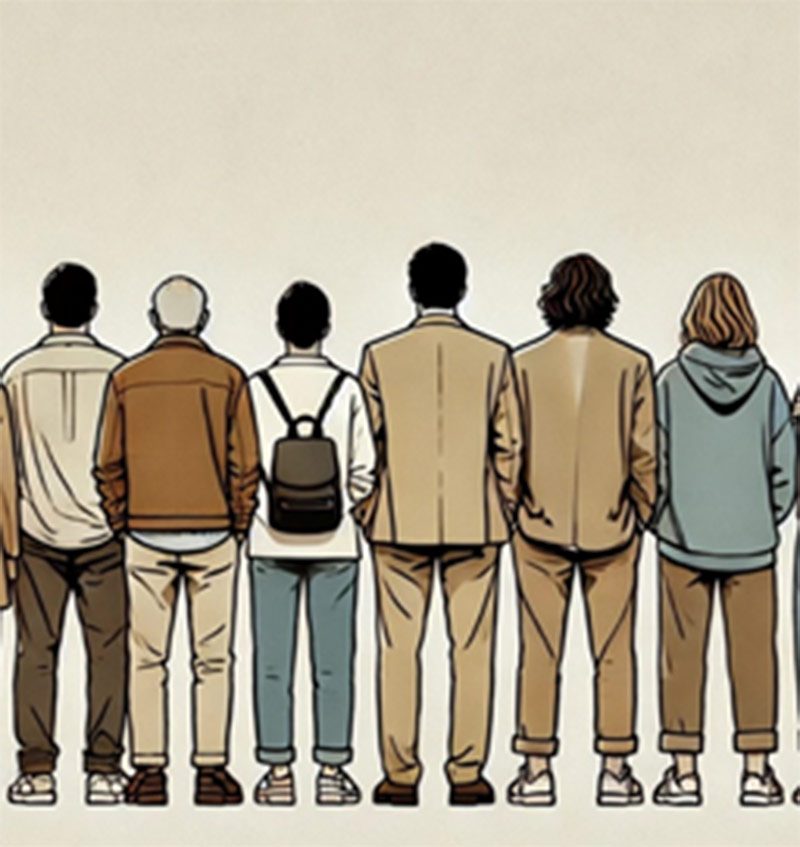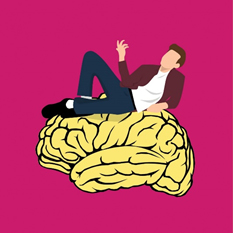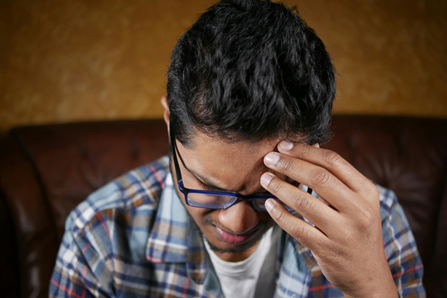
From the moment we are born and throughout our lives, our mind receives a huge amount of stimulation of all kinds. Especially in the first years of life, it is when our brain is most receptive to new information. Hence, it is the time when there is greater learning.
The mind has its own mechanisms for filtering information and it puts everything in its place. An important part of what we absorb goes unnoticed and is either discarded or remains in the unconscious. Not everything can be conscious. For example, while you’re talking to someone on a terrace, your attention will surely be on the conversation with that person. You will pay attention to the content of their message, but also to the non-verbal aspects (tone of voice, facial expression, gesticulation, etc.), and in addition, there will be much more stimulation around you that will enter through your senses (the touch of the chair, the breeze of the wind, the conversation at the next table and a long etcetera).

All that information, as you already intuit, is not processed at the same level of consciousness. Our brain is capable of leaving things in the background, so that you don’t even notice, and save what suits you best. In addition, it will capture and record much more easily everything that has had or aroused an emotional component. In this way, we learn many things.
For example, as children we learn very quickly what we must do to capture the attention of others, because that comforts us. We also learn what not to do, because we are scolded or suffer some harm, such as getting burned. In this way, I already know that if I touch fire I get burned, I don’t need to think about it consciously. I have it integrated into my knowledge of the world.
Well, it is exactly the same with many other things. From the most explicit to the most subtle. It seems useful, and it is. However, it has certain disadvantages. Especially when we are younger, this mechanism does not distinguish between truth and lies. We can end up internalizing things that are not true or that, at least, are harmful or poorly planned.
For example, if every time I get a good grade they tell me that I could have done better, I can internalize that I am never enough. If at home I have always been told not to eat so much because I am going to gain weight and I am going to be ugly, I internalize that being overweight is something bad and undesirable. They are beliefs that remain rooted in us, that in some way, we have internalized. This will make us interpret the world according to them and act accordingly. In the case of insufficiency, the person will never be satisfied with their achievements and may become obsessed with their goals. In the case of food, that person will watch what they eat and will be terrified of gaining weight.
What is internalized homophobia?
So, how will what is written in the title be given? Internalized homophobia is comprised of all those beliefs of rejection of homosexuality. These are beliefs that we internalize throughout our lives, and not necessarily because we live in situations in which there is a clear rejection of the homosexual person. There are countless things: “children don’t cry”, “that little hand…”, that they change the channel when there are two men kissing, “it’s better not to get together with that boy”, to see the people of the collective always represented in the media in isolated characters and with problems, and a long etcetera.
All of this is stimulation that we receive and that we all internalize. And yes, gay people too. Even long before they realize their sexual orientation. Homophobia is present in the environment, and therefore it is absorbed from a very young age without us realizing it and without questioning it. From there, we internalized it.
When the person realizes their sexual orientation, they already carry all that baggage. If I have internalized that this is rejectable and I discover that I am that, then I am rejectable, I reject myself.

But what does this mean? It can be translated into an infinite number of things. Among them, some of the most common are:
- Not accepting that you are homosexual
- Accept it, but make it invisible socially because you intuit that you will be rejected. That is, not to come out of the closet.
- Avoid showing affection towards your partner in public.
- Avoid talking about relationship issues
- Avoid other people in the group, criticize them or belittle them.
- Etc.
All of them involve suffering and start from self-rejection, from all the prejudices that are internalized throughout life. Making visible what one is goes from being something that should be natural and not entail any problem, to being experienced with disturbing and tense emotions.
How do we deal with it?
If we recognize in ourselves that we have internalized homophobia and that it causes us problems, we can do a lot about it. Coping with it is a personal process that requires time and dedication. We can do the following:
- Educate ourselves: look for readings about it, understand the history of the collective, read stories of people who inspire us…
- Sharing our suffering with someone we trust.
- To get involved in inclusive environments and strengthen ties with people from the group, through associations, for example, or by participating in volunteering or LGBT+ events
This can be very useful, but if you think you need more help, you can also ask for professional help. A general health psychologist can help you identify the sequelae of homophobia, its origin, and can help you work on them and overcome them. There are also psychology professionals specialized in LGBT+ affirmative psychology, who may have a greater understanding of the problem.
Guillem Nicolau Coll
General Health Psychologist
Col. No.: B-02773








